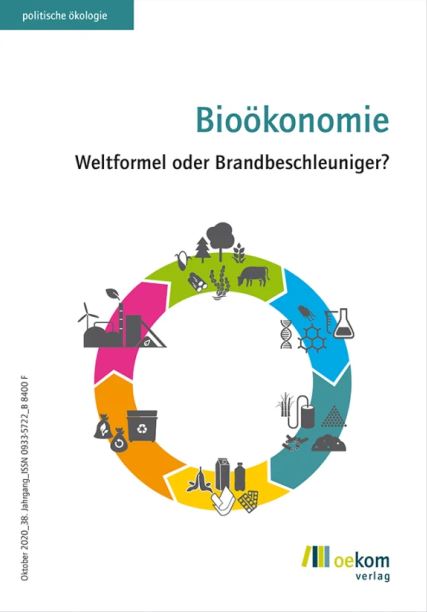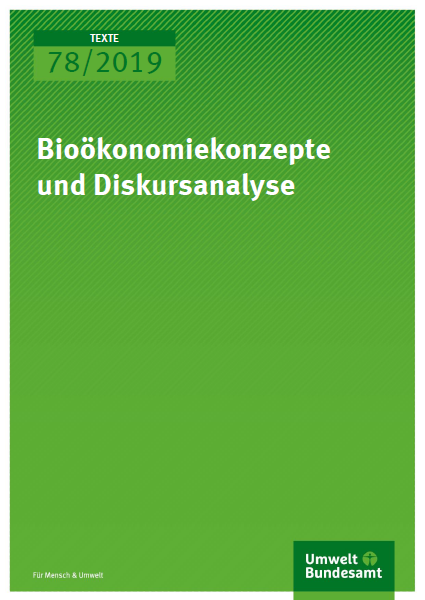Nachhaltige Ressourcennutzung – Anforderungen an eine nachhaltige Bioökonomie aus der Agenda 2030/SDG-Umsetzung
Abschlussbericht
- Publication
- Citation
Martin Möller, Viviana López, Rasmus Prieß, Tobias Schleicher, Katja Hünecke, Klaus Hennenberg, Franziska Wolff, Zoritza Kiresiewa, Marius Hasenheit, Patrick Schröder, Prof. Dr. Bernward Gesang (2020). Nachhaltige Ressourcennutzung – Anforderungen an eine nachhaltige Bioökonomie aus der Agenda 2030/SDG-Umsetzung. Abschlussbericht. Umweltbundesamt: Dessau-Roßlau.
The bioeconomy, which is currently the subject of much political debate, needs clear guidelines and targets if it is to develop its potential for climate protection and sustainable living. A bioeconomy geared towards economic growth or increased agricultural and forestry production can potentially cause damage to ecosystems and the environment. Therefore, an orientation towards the requirements of the Sustainable Development Goals (SDGs) is necessary. Only then can the opportunities of the bioeconomy be utilized without risking negative ecological impacts.
In this publication for the German Federal Environment Agency, the project team (Oeko-Institut, Ecologic Institute, University of Mannheim and the Institute of Development Studies) formulates requirements for a sustainable bioeconomy from the SDGs of the 2030 Agenda. They highlight that the policy goals behind specific implementation have a major impact on the sustainability of the bioeconomy. The positive potential can be unlocked primarily through goals such as ensuring global food security and reducing fossil fuels.
The targets of the 2030 Agenda provide particularly robust guidelines with regard to the risks of the bioeconomy. The target on Life on Land (SDG 15) is in fact diametrically opposed to some key policy goals. If, for instance, a growth-oriented bioeconomy increases the demand for biomass, this potentially leads to deforestation, biodiversity loss and desertification. In contrast, an SDG 15-based approach recommends a prioritized use of biomass that does not lead to increased demand.
Other important requirements, especially for Western countries, are derived from the goals on No Hunger (SDG 2) and Sustainable Consumption and Production (SDG 12). These are the perspectives that highlight the global nature of the bioeconomy. The supply of staple foods in the global South is dependent on consumption patterns of Western countries. A sustainable bioeconomy must take into account the global distribution of goods. Here, the import of bioresources from the global South must also be critically scrutinized. A considerate bioeconomy, on the other hand, should be oriented towards the 2030 Agenda and ensure the sustainable production of resources in countries where staple foods are scarce today.
The publication lists ten basic fields of action for German policy to achieve a bioeconomy that is more closely aligned with the 2030 Agenda. Three key measures are:
- The German government must define guidelines for the bioeconomy in line with the SDGs. If alternative approaches are more effective, preference should be given to them. Regular monitoring should review and update the fields of application of the bioeconomy.
- The social dialogue on the topic of bioeconomy must be intensified. Simultaneously, the population's awareness of consumption and dietary patterns can be raised.
- The international framework conditions for a sustainable bioeconomy must be improved. Imports carried out in connection with the bioeconomy, as well as supply chains, must be reviewed for their – often negative – impact on local ecosystems in the Global South.

